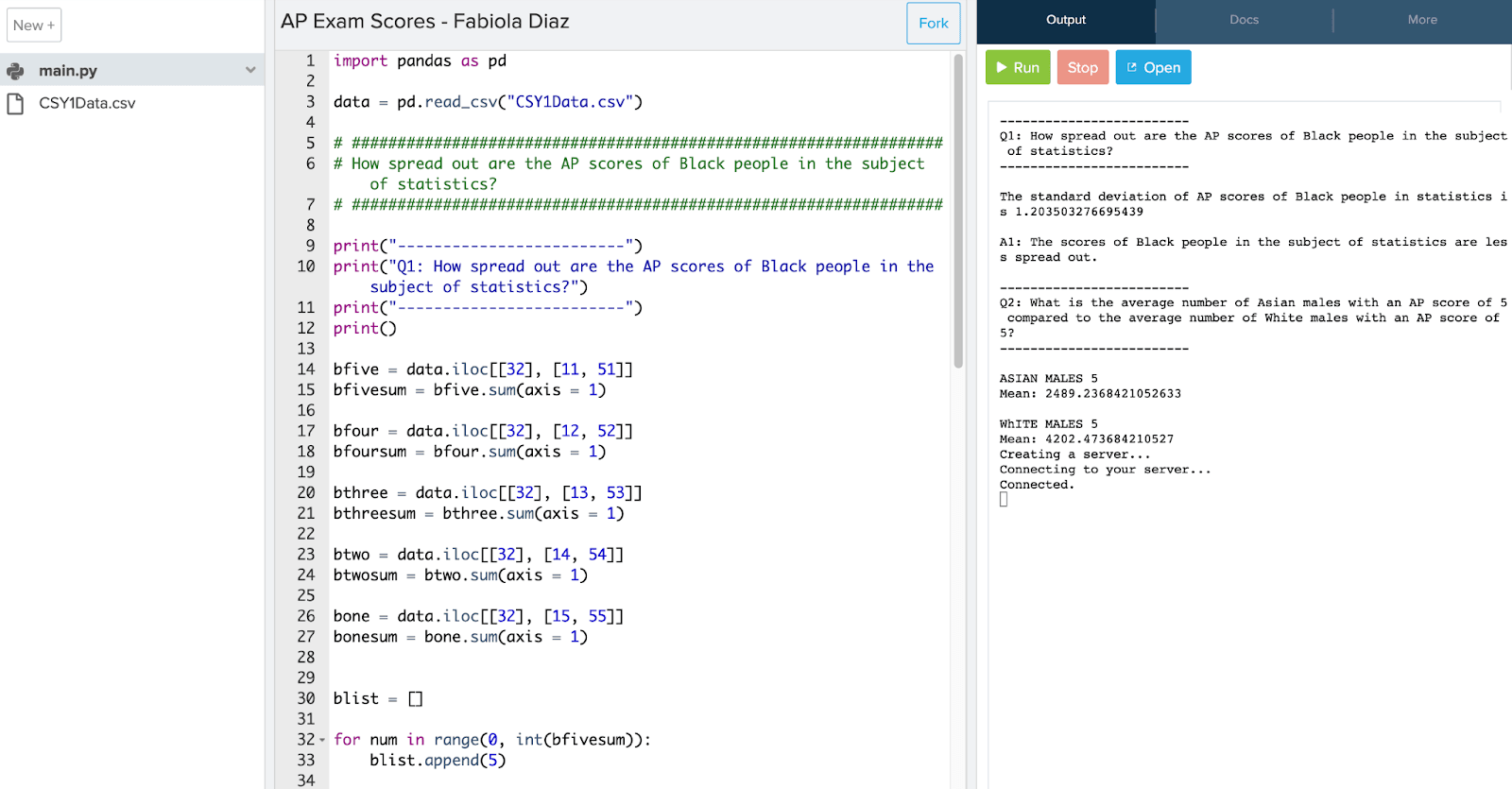Empowering Underrepresented Students to be Agents of Change through STEM Education
Empowering Underrepresented Students to be Agents of Change through STEM Education
SMASH is an organization that supports students from underrepresented populations (eg. Black, Latinx, Southeast Asian and/or Pacific Islander, and Native American) who have the desire to enter STEM professions. SMASH empowers students to be agents of change by equipping them with the ability to critically analyze problems facing their communities, using social justice and design thinking frameworks. The nonprofit also provides opportunities, resources, and mentorship to support students in getting to and through college and into STEM careers.
Students enroll in SMASH their first year of high school and attend SMASH Academy in each of the summers following their 9th, 10th, and 11th grade years. Each summer, students are immersed in tuition-free studies in partnership with 10 leading universities throughout the country. Students learn about topics such as design thinking, design sprints, data science, the social implications of data, and data visualizations.
As a first-generation, non-binary Southeast Asian American, Wells Lucas Santo, National Director of Curriculum and Training at SMASH, explains why he got involved. “I was thrilled to join SMASH in order to work with hundreds of underrepresented scholars across the nation, to equip them with the tools to succeed in STEM fields in college and beyond, and to create a curriculum that’s as much rooted in technical rigor as it is in social justice and joy in the wonders of STEM. I didn’t see many folks who looked like me or shared similar life experiences when I entered college for Computer and Electrical Engineering. I was frustrated by the lack of accessibility, inclusion, and community in the STEM field. So much of the content that I encountered was simply made inaccessible for the sake of deterring students without certain levels of access and opportunity to STEM education prior to college, and so many of the spaces I encountered were deeply homogenous. Early on, I knew I wanted to make a difference in STEM education and develop curriculum and classroom experiences that were inclusive, accessible, and culturally relevant so that those who were historically underrepresented in the field could feel like we belong and succeed in these spaces — because we do, and we can!”
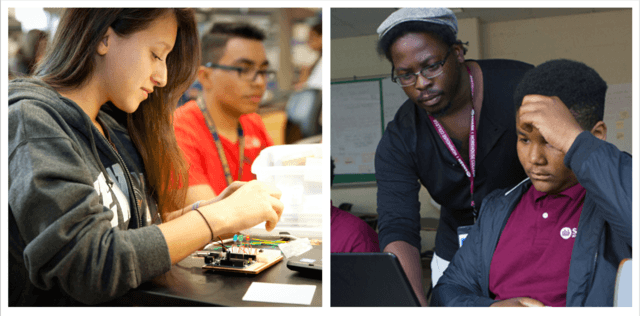
The overall goals for SMASH Academy are to change the makeup of the STEM workforce, particularly as it relates to tech fields, to ensure that youth who come from underrepresented backgrounds in this area land career opportunities and leadership roles. Zorel Zambrano, the VP of SMASH Academy explains, “We achieve this at SMASH Academy in the following ways:
- We move away from the traditional classroom experience and emulate what our scholars will practice and use in the workforce.
- We provide our scholars with core CS skills that will give them an advantage in any field.
- We provide opportunities for scholars to practice their technical skills using various platforms and tech tools used in the industry today, such as Figma, Miro, Hoverlay, and Flourish.
- Finally, we emphasize transferable skills in the curriculum, including project management and teamwork, collaboration and feedback, and presentation skills.”
During the summer of 2021, SMASH Academy was a 4-week program with workshop sessions running 4 days a week. There were 23 cohorts comprised of over 650 students and 182 facilitators.
With growing participation in a virtual setting, SMASH was in need of an effective and easy-to-use platform for centralizing their content. The 2021 SMASH Academy sessions were held virtually on Zoom, with coding activities conducted on the CodeHS platform. The implementation of CodeHS allowed facilitators and students to easily access all of the coding activities and collaborate directly in their web browsers, without installing any additional software. This helped eliminate any technical issues for the students and created a seamless virtual transition for the facilitators.
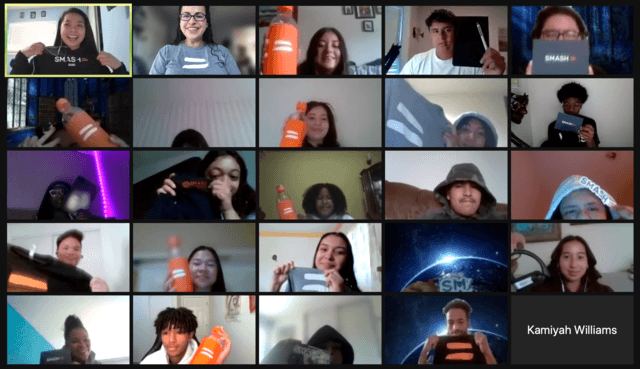
The CodeHS platform and Sandbox made a hands-on experience possible, by providing a space for scholars to be able to read, write, and debug code collaboratively in a virtual landscape. Facilitators were also able to easily check on the progress of all their students and give differentiated support based on where they were in the class.

“CodeHS made facilitation very easy. The modules and videos explained things in a way that made it a learning experience for all involved. Especially helpful was the gradebook, as it allowed me to keep track of where students were in the course.”
- Daniel B. Ferguson, University of Illinois SMASH Academy Facilitator
The summer 2021 SMASH Academy used the new Data Science course on CodeHS. With custom modifications, the course focused on the Data Science Lifecycle unit which covered topics such as:
- Asking statistical questions
- Using Pandas to open and analyze datasets
- Transforming data and columns
- Running statistical analyses
Fabiola Diaz, a SMASH Berkeley Scholar, shared that programming has taught her how to persevere. This summer, her project group did a data deep dive into Advanced Placement exam scores across different ethnicities.
Using Python and data science concepts like mean, standard deviation, and coefficient of variation, her group used data to find conclusions to questions about the Model Minority Myth:
- ‘Will the average number of Asian males with an AP score of 5 be higher than the average number of White males with an AP score of 5?’
- ‘How spread out are the AP scores of Black students in the subject of statistics?’
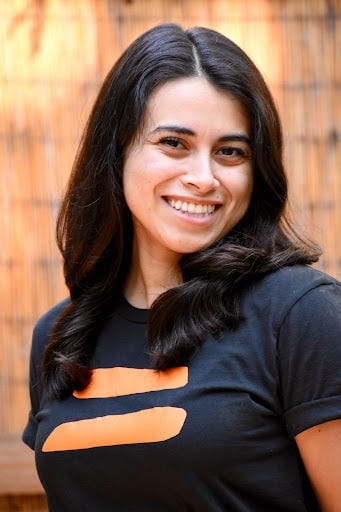
SMASH Berkeley Facilitator, Diana Gomez, shared “I was very impressed that the students were able to learn how to read python documentation, so that they could learn to use other libraries. This enabled them to further analyze their data and fully answer their statistical question.”
Scholars like Fabiola took initiative in searching for ways to improve her code as well as use different libraries and functions that would help progress her project. If she did not fully understand concepts or code, she would not hesitate to ask for help.
For Fabiola, computer science and technology is something that has always helped her when she’s down. “Just being able to lose myself in a game, video, or voice call with friends for a few hours is a welcome distraction.” She’s excited to continue exploring and learning more about computer science, as she thinks about her future.
“If I can make something, a game or otherwise, that brings a smile to even one person’s face — I’ll be happy.” — Fabiola Diaz, UC Berkeley SMASH Academy Scholar
Working with students like Fabiola fuels the SMASH Academy to continue providing support for students from underrepresented populations who have the desire to learn and explore the possibilities of a STEM career.
See the latest from SMASH Academy and their upcoming application offerings here!
Wharton Y3 Student Projects
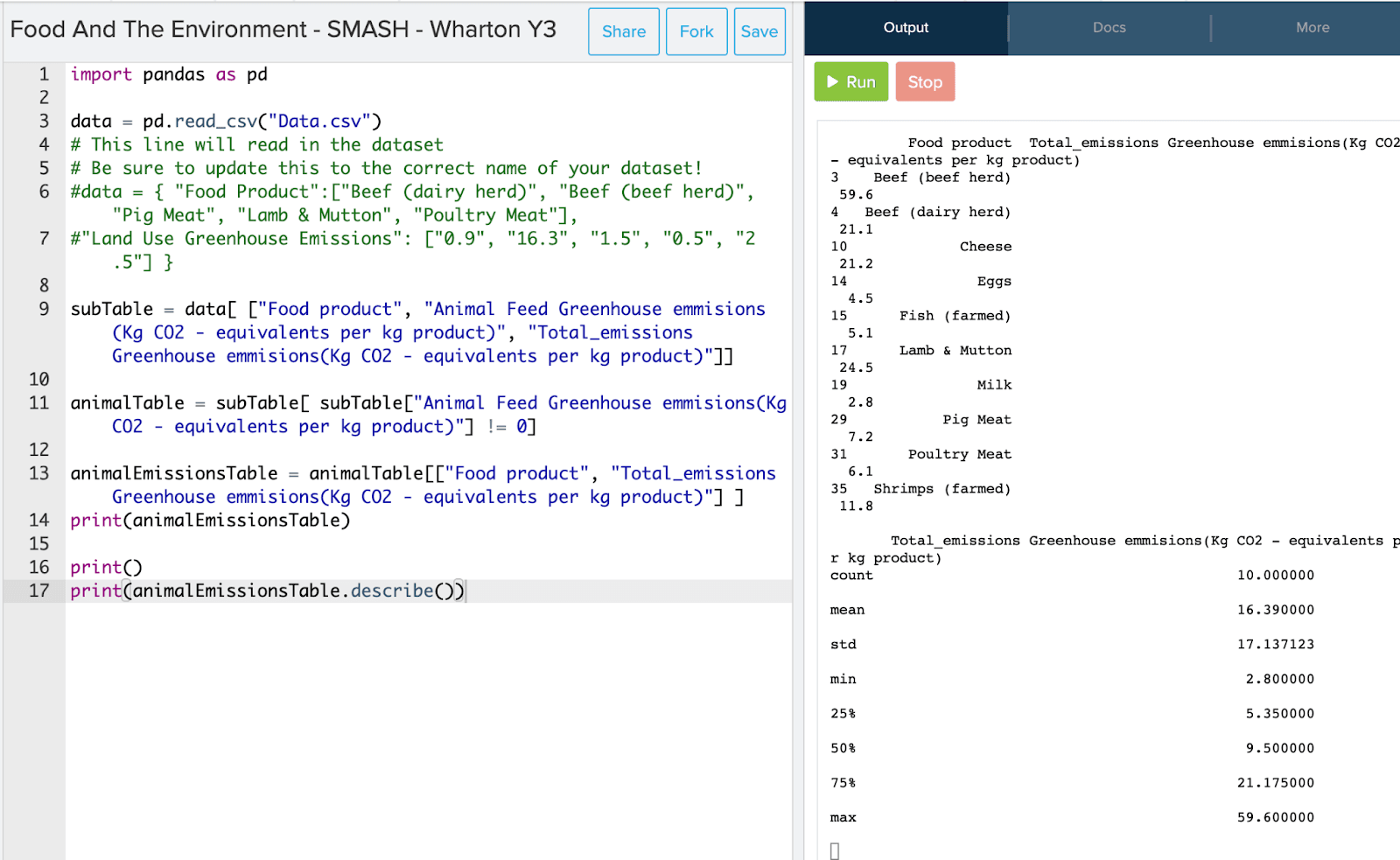
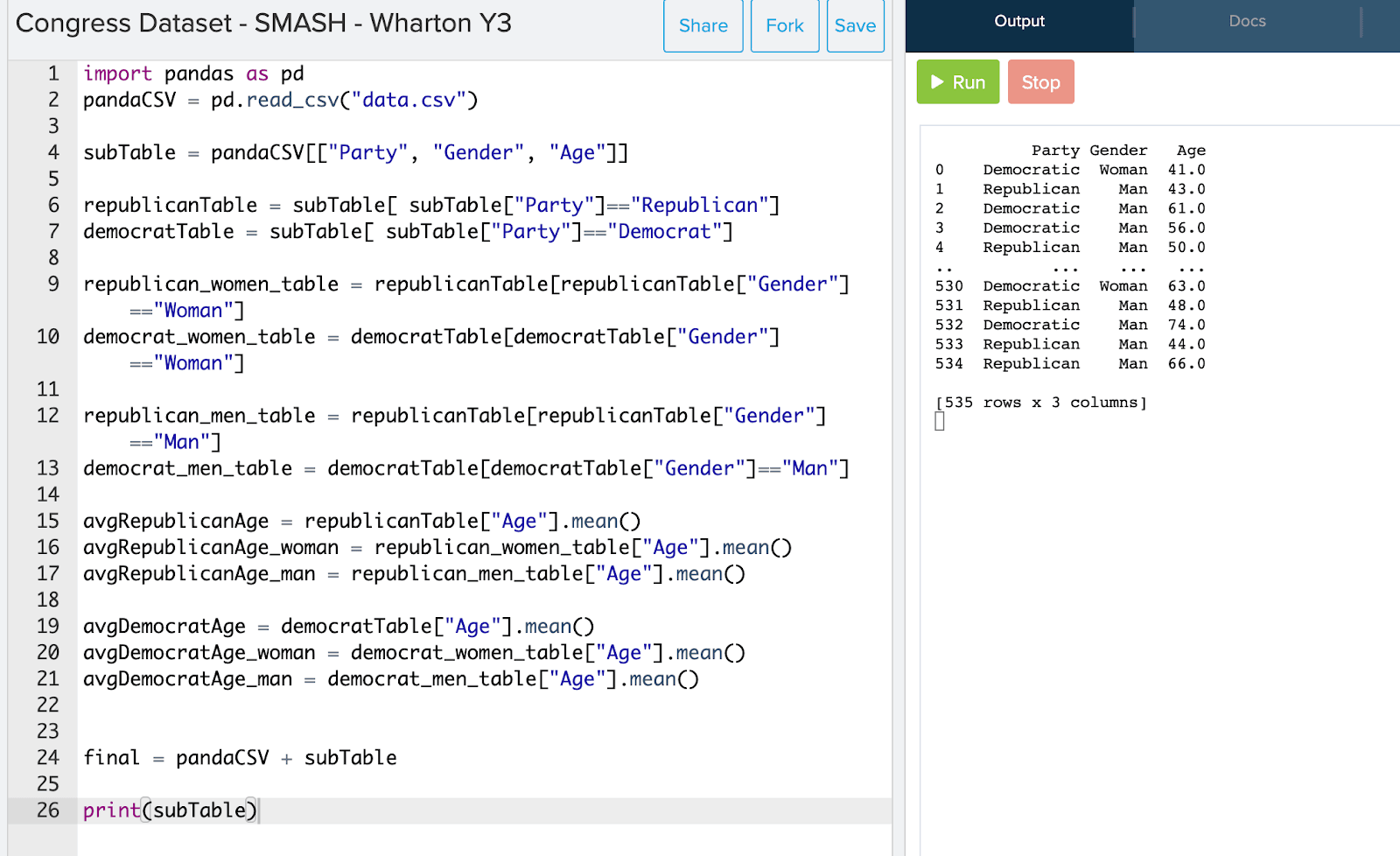
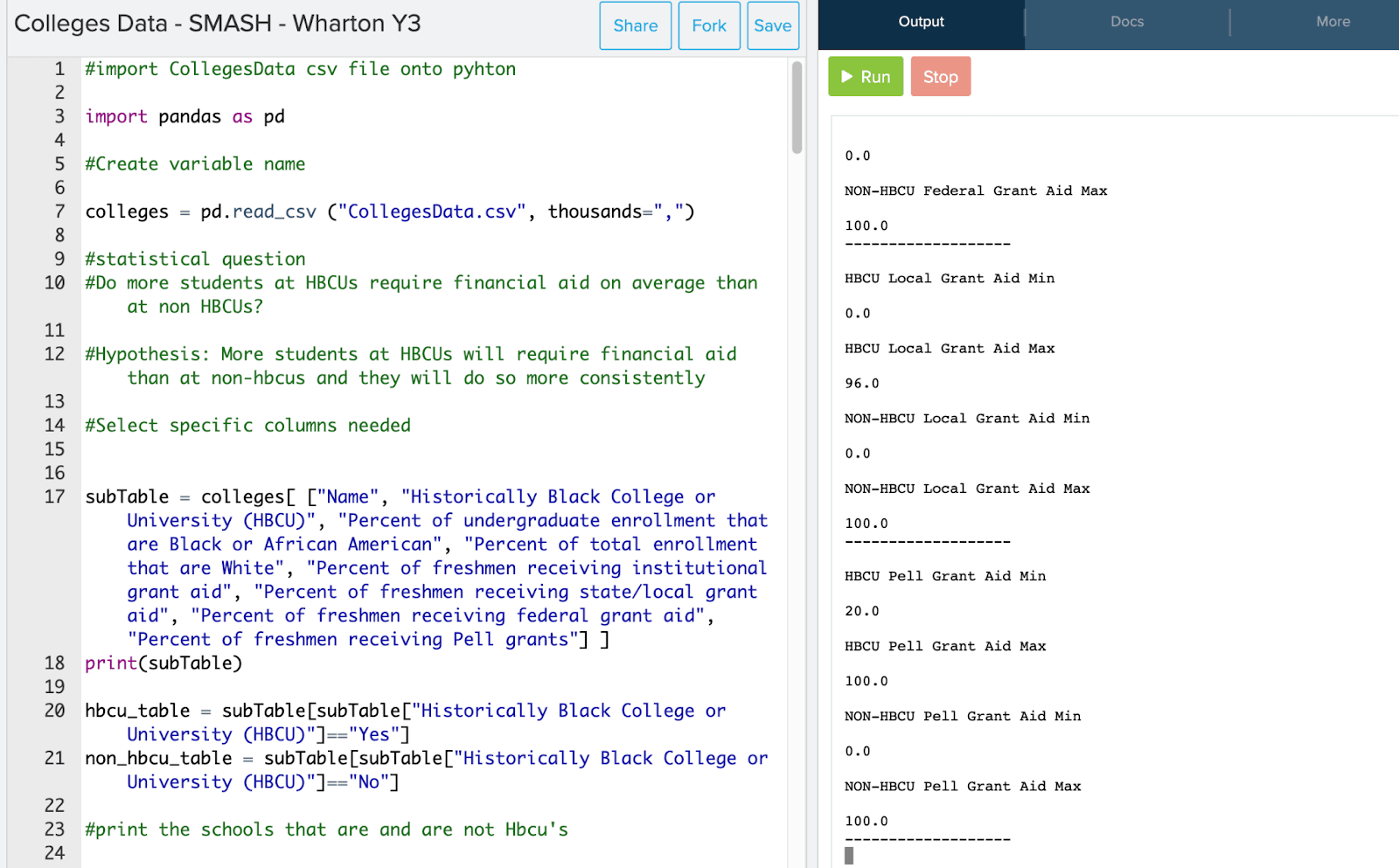
Download the PDF of this case study here.
